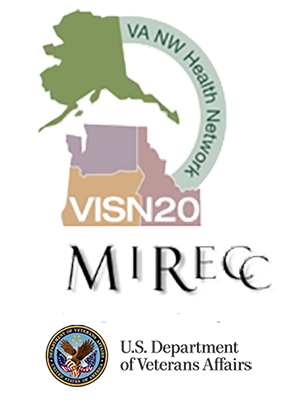Cannabis: Evidence, Risks, and Myths

Friday, November 19, 2021
10:00AM - 12:00PM PST
With Dr. Garth Terry, M.D., Ph.D: Cannabis use is increasingly common in clinical populations. Although many benefits are advertised, the relative risks are not always understood. This presentation aims to help clinicians conduct evidence-based discussions with their patients.
Location: Online
Continuing Education: 2 CE Credits (Applied at NASW)
Cost: Free to RVP Volunteers, Vet Center and VA Staff
$29 for Other Community Providers
Who Should Attend: This training is open to all RVP Volunteer Providers, social workers, mental health counselors, and community providers.
What You Will Learn:
Cannabis and cannabinoid products are becoming increasingly common and accepted. While the potentially beneficial effects of cannabis are widely advertised and disseminated, perceived risk of cannabis use has decreased. However, the available evidence for cannabis use is generally more modest for medical applications than is generally described. As well, cannabis use is associated with several important risks, in particular cannabis use disorder, cannabis withdrawal, and negative effects to mental health.
This presentation aims to provide clinicians with evidenced based information on the potential benefits and risks of cannabis use, particularly for patients with mental health concerns. A brief overview of the actions of cannabis on the brain will be followed by a summary of research on common motivations for using cannabis (e.g., pain, anxiety), and important risks associated with cannabis use. To the extent available, these aspects will be described separately for tetrahydrocannabinol (THC), cannabidiol (CBD), and synthetic cannabinoids (aka spice, K2).
By the end of this presentation clinicians will be able to identify cannabis use disorder and develop a treatment plan, describe cannabis withdrawal symptoms and anticipate their occurrence, and have an informed discussion with patients/clients on benefits and risks of cannabis use.
Learning Objectives
At the end of this presentation, the learner will be able to:
- Assess the available evidence of cannabis for therapeutic applications
- Understand the risks of cannabis, including cannabis use disorder and withdrawal
- Conduct a discussion with patients/clients on several evidence based benefits and risks of cannabis
- Describe the differences between cannabis (including phytocannabinoids) and synthetic cannabinoids (aka, spice, K2)
- Develop a treatment plan for patients/clients with cannabis use disorder
CE Faculty
Garth Terry, M.D., Ph.D. is a Physician/Research Career Development Award Associate in the Mental Illness Research, Education, and Clinical Center (MIRECC) at the VA Puget Sound in Seattle, and an Acting Assistant Professor in the UW School of Medicine Departments of Psychiatry and Behavioral Sciences and Radiology. He has experience in neuropsychiatric research of cannabinoid pharmacology, cannabis use, and positron emission tomography (PET). He completed his Ph.D. in the Graduate Partnership Program between the National Institute of Mental Health (Bethesda, MD) and Karolinska Institute (Stockholm, Sweden) with the dissertation, “In vivo imaging of the cannabinoid CB1 receptor using positron emission tomography.” He received his medical degree from George Washington University (Washington, DC), trained in psychiatry at UCLA where he served as chief resident and provided medical support to numerous clinical trials studying substance use disorders, including the NIDA Clinical Trials Network sponsored study, ACCENT, on the use of N-acetylcysteine for cannabis use disorder in adults. He is a board-certified psychiatrist and completed a research fellowship at the Northwest MIRECC at VA Puget Sound, where he is currently principal investigator of the UW Alcohol and Drug Abuse Institute sponsored study, “Pilot study to assess the feasibility of prazosin for cannabis use disorder in individuals with or without post-traumatic stress disorder.”
Registration is closed, please contact staff for more information.
Sponsored by

The Rx Abuse Leadership Initiative (RALI) of Oregon is a community health coalition, with a focus on raising awareness of opioid addiction. RALI Oregon represents communities across the state that have been impacted by this crisis including employers, veterans, children, rural Oregonians, health care providers, and law enforcement.
In Partnership with

The VISN 20 Northwest Mental Illness Research, Education and Clinical Center (NW MIRECC) improves the health and well-being of Veterans by developing, evaluating, and disseminating novel effective treatments for military posttraumatic stress disorder (PTSD) and its complex comorbidities or co-occurring diagnoses.
Contact: RVP Staff .(JavaScript must be enabled to view this email address)
503-954-2259
Share this online:




